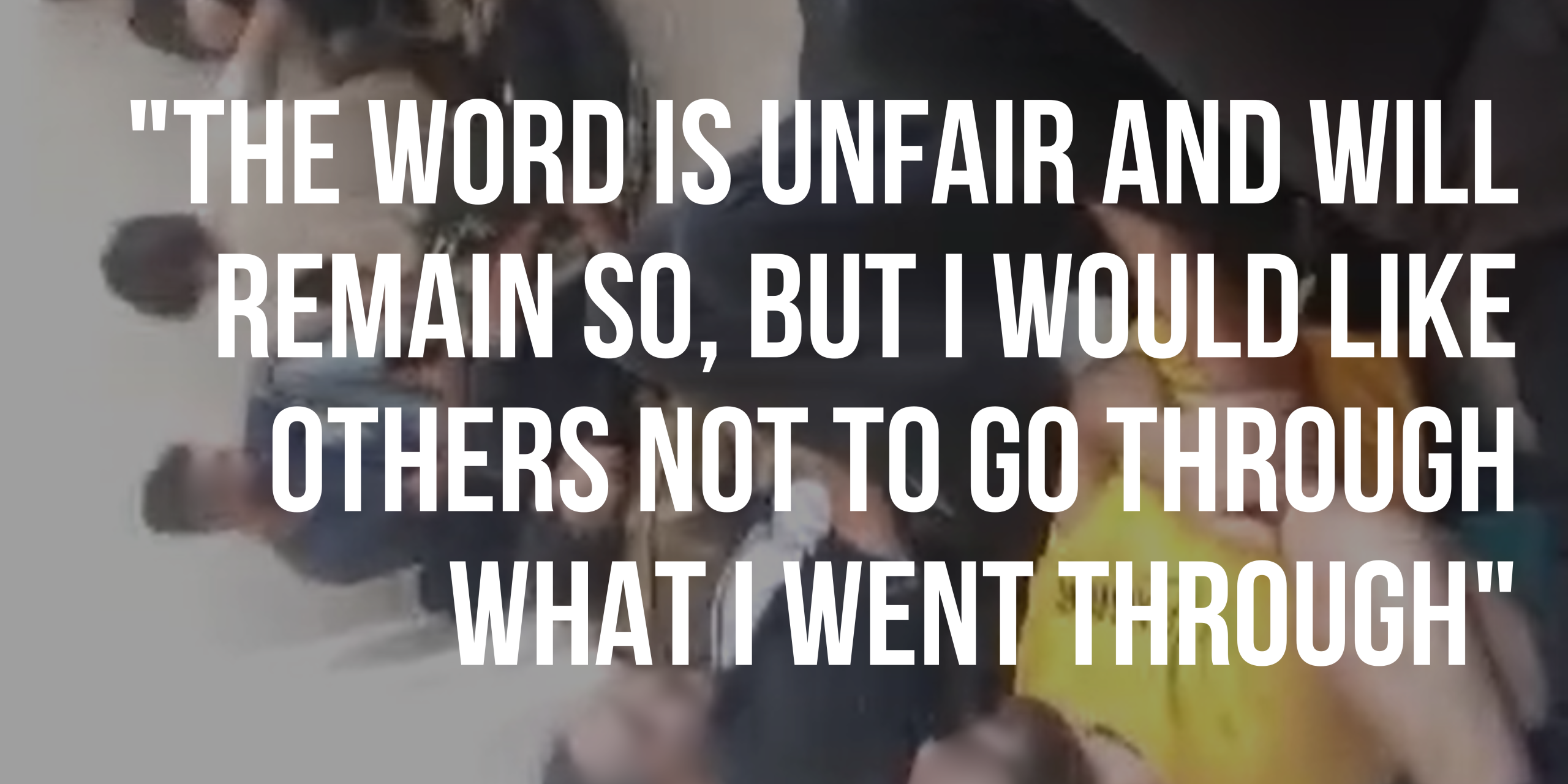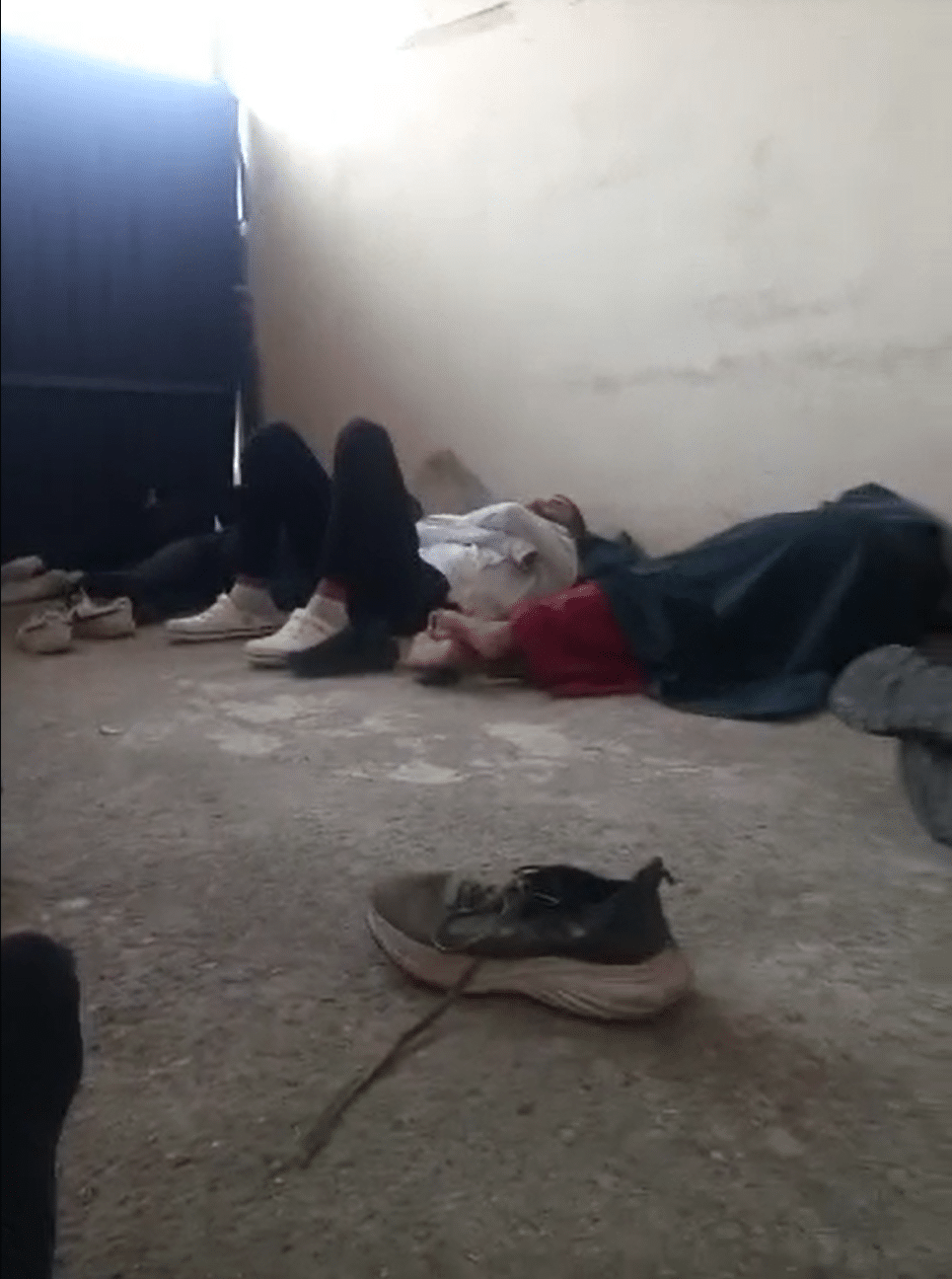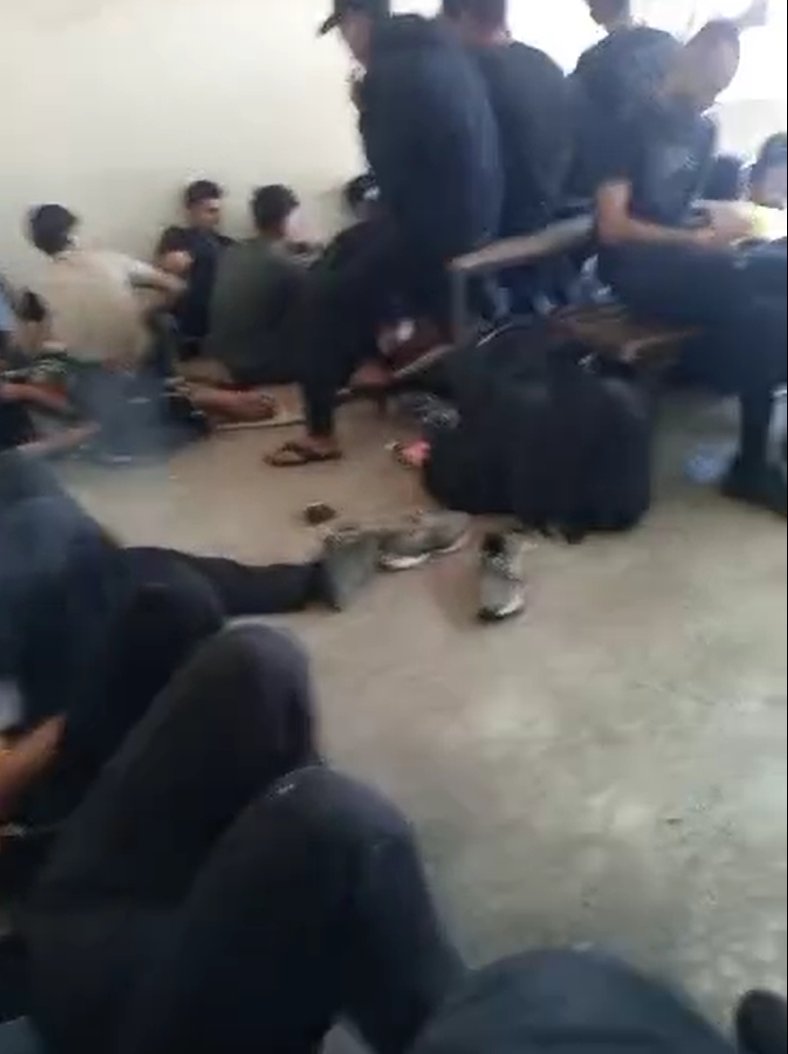This website uses cookies so that we can provide you with the best user experience possible. Cookie information is stored in your browser and performs functions such as recognising you when you return to our website and helping our team to understand which sections of the website you find most interesting and useful.
The word is unfair and will remain so, but I would like others not to go through what I went

The main respondent is a 32-year-old man from Algeria. On the 19th of June 2025, he was travelling together with 25 people across the Hungarian-Serbian border. In this group there were people from Morocco, Afghanistan, Somalia and Algeria, including minors and two women, one from Somalia and one from Morocco, and the main respondent.
The main respondent was brought to this location after the pushback by Frontex and Serbian border police.
At around 1:00 am on the 19th of June, they were apprehended by police after walking a maximum of 15 minutes into Hungarian territory. The respondent reports that around five people managed to escape and the rest were caught by two or three Hungarian border police and two German police, all armed. The respondent identified the German police because he knows some German language, and because they were wearing uniforms with small German flags. The German police just watched, whereas the Hungarian police interacted solely with the people from Afghanistan. The main respondent explained that he believed the Hungarian border police were aggressive only with Afghani people because they believed they could be smugglers, even if they were not. The aggressive behavior that the respondent described consisted of frightening them with physical and verbal violence. The police also used dogs and made selfies and videos with the people on the move and the dogs as a way to intimidate people and discourage them from trying to cross again, as the respondent explained. Women were left out from all these interactions since they were separated from the rest of the group. The police did not explain anything to the people on the move. The main respondent had the impression that if German police had not been there, the Hungarian police could have been much more violent.

Location where the main respondent was held for 43 hours without access to food, water or a toilet in Horgoš, Serbia
Then, people were taken inside a van by the Hungarian police to a closed camp in Kelebia, near the border. From the respondent’s description, this seems to bea temporary holding facility near Kelebia. There, the respondent reports that the Hungarian police took photos of everyone holding plates with numbers. He also reported that Frontex then arrived at this closed camp and searched people in their pockets and bags. He also described that Frontex officials had EU flags on their arm bands, but did not have the blue band across their chest. He states that Frontex locked up the group for around 40 minutes, until the Serbian police arrived and took the group in a truck to the Serbian police station at Horgos at around 2:00 am. The respondent states that at no point did any of the authorities involved, including Frontex, ask any member of the group if they wanted to claim asylum. The respondent reports that on that police center at Horgos the Serbian police took the fingerprints of everyone. There were already people in this room where the respondent was kept for around 43 hours. In total there were around 25-30 people in the room with no access to food, water or a toilet, and there were also women and minors inside, with no separation between man and women. According to the respondent, he had heard that people are kept in this center while police are waiting for the arrival of enough people to fill the bus to then send them to the camps in the south of Serbia. Some people were already there when the respondent arrived, so those people had already been locked in that room for probably more than two days. The respondent described that Serbian police would always talk with the people in Serbian and did not provide any translation. The respondent also told us that if people had money, they could have access to food.The Serbian police gave the respondent a document, which he showed to NNK reporters on the 21st June 2025. This document stated that the respondent was illegal in the territory of Serbia. It then stated that on the 19th of June at 1:45 am he was handed over by the Hungarian border police to the police patrol from Kanizha, and then already in Serbia, the police from Kanizha gave him to the police of Kikinda. This document also describes that the respondent crossed the state border outside a designated/official border crossing point, at an unspecified place at an unspecified time. Because of this, he was banned for 1 year from Serbia, until the 19th of June 2026. The document stated: “It was determined that the foreigner is staying in the Republic of Serbia illegally and that he has no other legal basis for staying on the territory of the Republic of Serbia”. This document was signed by the Chief of Police Department Kika – Pavle Rajkov.At around 9:00 pm on the day following his detention, the correspondent was taken to Preševo in a big bus with 45-50 people. He stayed in the Preševo camp for adults for four days. The respondent shared with us that the situation in Preševo is not good since it is difficult to sleep in the camp due to the presence of many mosquitos that cause skin irritation and itching. He also told us that if people try to see a doctor nothing is done.To conclude, the respondent kept saying how different it was to go in the game in 2016, when he first came to Europe, when compared with the nowadays situation across European borders. He affirmed that now it is very expensive to cross borders, due to smugglers that ask for thousands of euros to go from one country to another. Before, he explained, the first time he came in 2016 the only problem was police pushbacks. Now, also smugglers can be very dangerous.

Location where the main respondent was held for 43 hours without access to food, water or a toilet in Horgoš, Serbia

